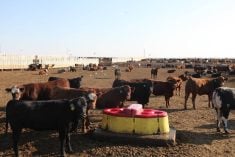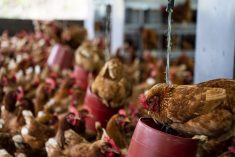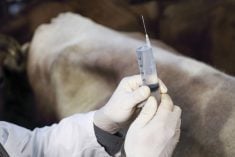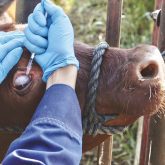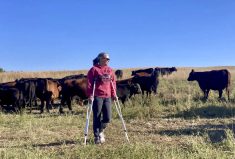Here are Dr. Craig Dorin’s recommendations for using antimicrobials effectively.
- Don’t use antimicrobials for diseases that they are not indicated for. For example, abscesses are a common problem, but these are localized infections. If the animal does not have a fever and the infection is not systemic, it doesn’t need an antibiotic. Similarly, don’t use antibiotics for injuries.
- Understand the classes of antibiotics and choose those furthest away from ones of high importance to human medicine. Talk to your vet to learn what individual antibiotics are suited for.
- Diagnose disease properly so you know which antibiotic to use. Get a lab diagnosis if necessary.
- Use antibiotics for the proper duration.
- Proper nutrition is the foundation of any health program. Inadequate mineral and vitamin supplementation is often a problem.
- Maintain proper vaccination protocols and have a good vaccination program for the prevention of bovine respiratory disease.
- A pre-weaning vaccination program can help cattle develop stronger immunity.
- Use low-stress weaning.
- Calve later. Calve on green grass and clean ground. Using a calving rotation system can reduce diseases.
- Have good biosecurity. Don’t allow dirty trucks, find out where visitors have been, and know the vaccination record and disease history of every animal you bring onto your farm.
- Don’t bring dairy animals onto your farm because of the threat of Johne’s disease, which can be transmitted through milk. If you need colostrum, get it from a beef operation.
- Rely less on auction marts and have more direct farm-to-feedlot sales. Send health information with the animals when they go to a feedlot.
Read Also

Alberta Beef Producers gives update on potential withdrawal from CCA
Alberta Beef Producers chair Doug Roxburgh discusses ABP’s plan to leave CCA during a producer’s meeting.



